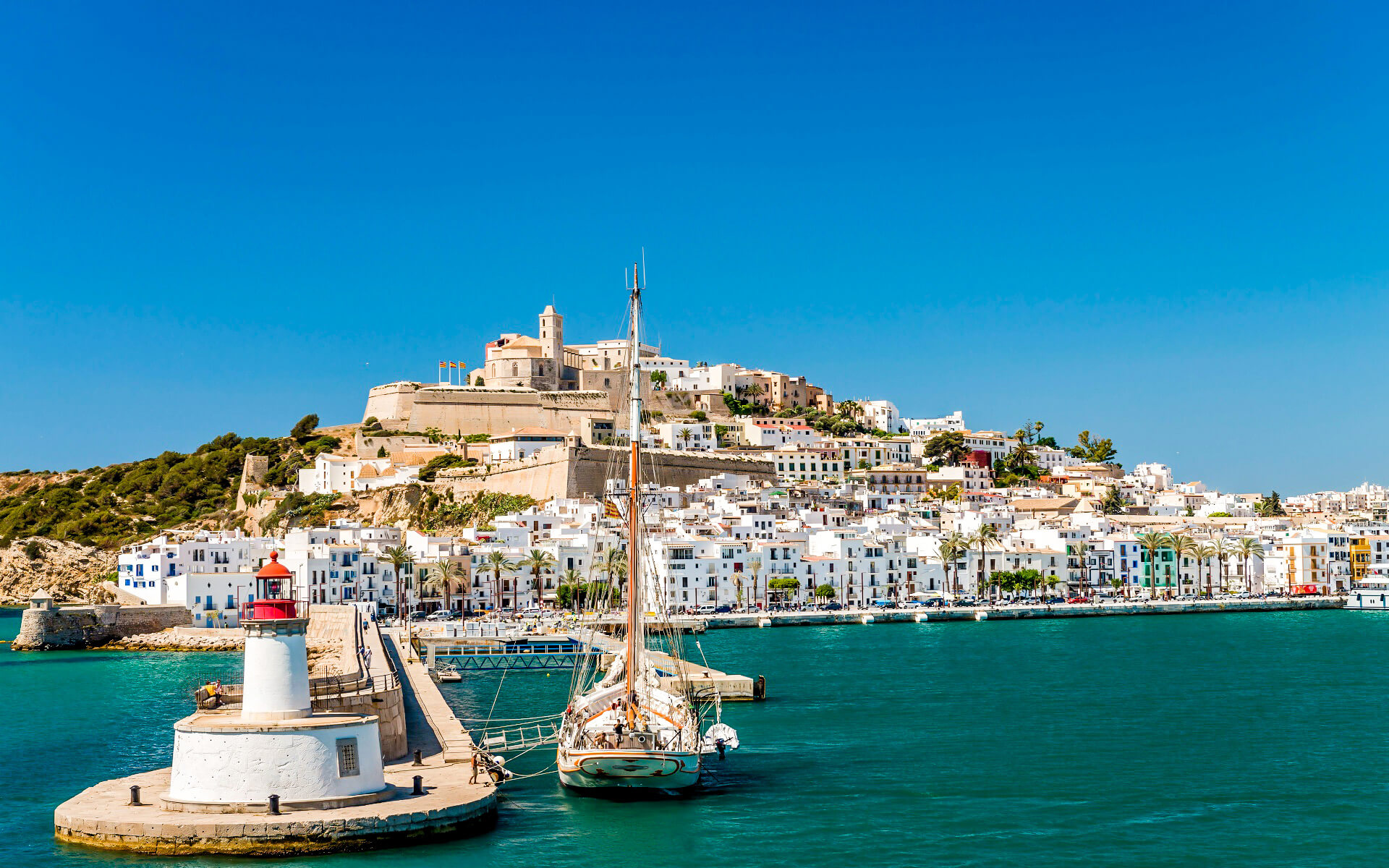Ibiza is a famous tourist destination, owing to its famed and at times raucous nightclub-based nightlife, which is concentrated on two areas: Ibiza Town, the island’s capital on the island’s southern coast, and Sant Antoni to the west.
Since the island’s openness to foreign tourists in the late 1950s, Ibiza’s nightlife has seen various transformations. The roots of today’s club culture may be traced back to hippie gatherings in the 1960s and 1970s. People of diverse nations who shared the hippie attitude would gather, speak, perform music, and sometimes consume drugs during these. These would most likely occur on beaches during the day, with naked swimming being prevalent, and in leased fincas in the evenings or at night. Apart from this secretive culture, which drew many foreigners to the island, local venues in the 1960s were largely pubs, which served as gathering places for Ibicencos, ex-pats, mariners, and visitors alike. The Estrella bar on the waterfront and La Tierra in Eivissa’s ancient town were also favorites.
Several establishments opened and left an indelible mark on Ibiza’s nightlife throughout the 1970s, a decade that witnessed the creation of the nightclub as we know it. Pacha, Privilege (previously Ku), Amnesia, and Es Parads are the four original clubs that are still in operation today. These four clubs primarily defined White Island nightlife, which evolved and developed from several distinct elements: open-air parties (Es Paradis, Privilege, Amnesia), held in isolated locations, eventually old fincas (Pacha, Amnesia), that mixed in nudity and costume parties (Es Paradis, Privilege, Pacha), and enabled people from various backgrounds to mix (all). The hippie mentality functioned as a common feature that infiltrated all of these venues and stimulated the feeling of a certain type of freedom, which was reinforced by the vacation character of the majority of the White Island visits.
The music performed in these clubs acquired popularity throughout the 1980s and became known as Balearic beat, a forerunner of the British Acid house genre. As rave parties proliferated across Europe, a DJ-driven club culture seized hold of Ibiza nightlife. It was around this time that Space opened, thanks to Pepe Rosello, and found a niche in the after-hours parties: basically, the club would close at 6 AM and reopen at 7 AM, when all the other clubs were still closed, allowing partygoers to flock from the other clubs to Space and continue dancing in broad daylight.
The after-hours parties were firmly established on the island by the end of the 1990s. Circoloco parties debuted at DC10 in 1999, with some of the classic aspects of Ibiza nightlife at the forefront.
Nowadays, famous producers and DJs from the dance music industry visit the island throughout the summer and perform at the numerous clubs, in between tours to other worldwide places. Some of the island’s most well-known DJs host their own weekly parties. Many of these DJs utilize Ibiza as a platform to debut new tracks in the electronic dance music genres of house, trance, and techno. The city has earned international reputation as a cultural hub for house and trance in particular, with its name often being used as a partial metonym for the specific taste of electronic music that originated there, similar to Goa in India.
Ibiza Rocks, a live music event, has contributed to reshape the Ibiza party environment since 2005.
[Citation required] Arctic Monkeys, Kasabian, The Prodigy, and Kaiser Chiefs have all performed in the courtyard of the Ibiza Rocks Hotel.
The season generally starts in early June with the opening parties at Space and DC10 and concludes on the first weekend of October with the Closing Parties. A typical Ibiza clubber’s routine involves getting up around midday, early evening naps, late night dancing, and “disco sunrises.” Ibiza has earned the moniker “Gomorrah of the Med” for its tolerance of misbehavior by young adult vacationers. Café del Mar, a long-standing pub where many visitors usually enjoy the sunset made famous by José Padilla, who has issued a dozen eponymous CD collections of ambient music performed at the spot, is also well-known. That and other surrounding pubs have become more famous after-dark venues for club pre-parties with prominent DJ performances.
The island’s administration is attempting to promote a more refined and peaceful tourist environment by enacting restrictions such as mandating all new hotels to be 5-star and shutting all nightclubs by 6 a.m. at the latest. The management wishes to recruit a more diverse international mix of visitors.


